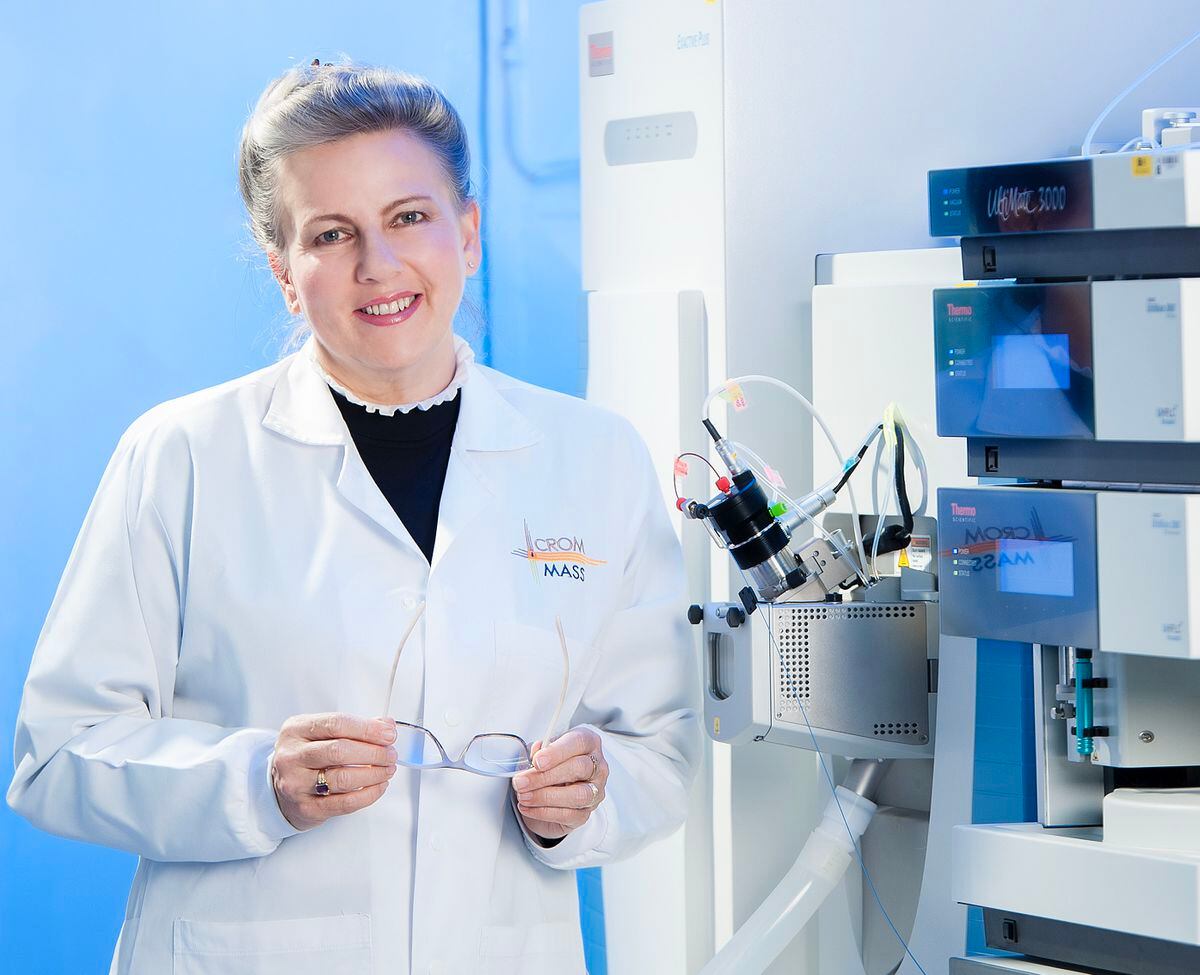Asked which of her titles, awards and academic achievements bestows readers, Elena Stashenko exudes bold simplicity in a country where even politicians who plagiarize their theses are expected to be called ‘doctors’. “Don’t complicate things, write the following: Elena Stashenko, professor of chemistry at the Industrial University of Santander (UIS), that’s enough.” He holds a doctorate in organic and instrumental chemistry from Druspi Narodov University in Moscow — where he also earned a bachelor’s degree — and isn’t fazed by that adjective. “Colombia has a strange plague, ‘doctoritis’. Many people are ‘doctors’ from birth. I don’t understand”.
He was born on May 3, 1958 in Russia during the Soviet Union. She is an only child. Muscovite. He lived near Izmaylovo Park – where Peter the Great used to walk – with his parents, Julia, a chemist; and Eugenio, physicist and ballistics expert. Although he preferred mathematics and biology, he eventually followed his mother’s career. On the subway, on those long trips to the university, he discovered the work of Gabriel García Márquez, Alejo Carpentier, and Mario Vargas Llosa. “In the ’70s, if you looked around, we were all on the train cars reading the works of the Latin American boom.”
“Latinada” — as he affectionately calls it — doesn’t just come in books. Dozens of immigrants from the Americas went to study in the former Soviet Union. “Meeting them had a huge impact on us. We were very organized, we were guaranteed free education and healthcare and jobs; The Latins are pure entropy, a volcano, a whirlwind. What can we hormonal teenagers do about it? Well, you fall in love and get married”
Falling in love with a Colombian, she arrived in Bucaramanga, Santander in 1982. It didn’t take long to find out that Macondo wasn’t. In the city that welcomed her, there was no way to practice instrumental chemistry, at least as far as she knew. But he was not idle. A year later he was already teaching classes at UIS. Their love affair ended, but Elena’s fascination with all the plants and new plant species she began to discover was far from over. She became a new female icon in that public institution, local and international, of science and research.
Let the tree grow
Elena is in charge of the University’s Chromatography and Mass Spectrometry Laboratory (CROM-MASS), directing the National Research Center for Agroindustrialization of Tropical Aromatic and Medicinal Plant Species (Cenivum). Recognized three times by the National Science Council (CCN) and the journal Analytical Scientist One of the 60 most respected scientists in the world and one of the top 10 scientists in South America.
After decades of research and learning about the many aromatic and medicinal plants of the region, his work is highly acclaimed not only for securing a seemingly impossible patent but also for inspiring his students to love science. “When I arrived in Bucaramanga, they told me it was unthinkable, but there are results.”
He guides, moves and inspires from the magical space he built at the Industrial University of Santander, which resembles a small park. “It’s a garden, with a classroom in the middle. It’s an interactive, cultural garden. The best: it’s a world in a garden! We don’t have air conditioning, we don’t need it, because we learn and discuss surrounded by plants. And it’s a space with its own soundtrack. “Birds In the morning we sing, we hear insects chirping, at night we hear toads and frogs,” Stashenko said in fluent Spanish embellished with his Russian accent.
From this classroom, decorative hanging plants, some rosemary branches, a piano and some teddy bears, he used as in-person “students” in the pandemic, while he taught online classes to his flesh-and-blood students, the teacher attends an interview with this medium, late November afternoon. “To me, leadership is nothing more than trying to infect others with your dreams; Constructive dreams, of course, help a society, its dignity and its progress. Realized dreams come true, perseverance and patience are needed, sometimes not so valuable here, because people want everything to happen now.
Without ‘father’
Leading, as she says, has its processes: “First you plant, check that the roots are taking hold, then you have to wait for the tree to grow. And it grows at its own pace.” Leadership, the author says, is “accepting the responsibility you have with others, and then not letting them down.”
Leading is easy if you have access to education. “Learning, educating yourself, gives you freedom, power, independence, choice. It gives you self-esteem. Sometimes I go to a clothes shop and I see some women who can’t even speak, the clothes are bought by their ‘daddies’ – referring to their partners, kens with thick wallets who pay for everything and choose for them – . I’m a chemist, I don’t have the latest model car, I don’t expect to, I don’t even know how to drive, but I can buy the clothes I want without any ‘daddy’ to choose from. “I am independent because of my profession, my training.”
That’s what she asks of everyone in the region: access to education. But this afternoon, Elena, mother of two daughters, Juliana (journalist, art expert; lives in Vienna) and Laura (political scientist in Mexico), compulsive reader, expert in philosophy and intellectual who reads something new every day, she feels. A little lonely. “I confess that today I am in no hurry to return home, because I will feel the void left by my friend Marcel.” He talks about his French bulldog who died ten days ago, aged 12, after a lump was found in his throat. When he remembers it, his light, gray eyes, with shades of green, glow intensely. “Marcel,” sighs the teacher. Reminds me that I wanted to study veterinary medicine. do you see There’s always something new to learn.”
*Supported by Ecopetrol, Movistar and Fundación Corona.

